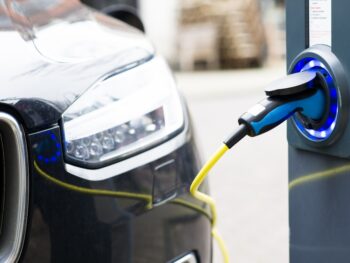UK must double rate of EV charge point installation to meet 2030 target
The UK needs to more than double the rate at which it is rolling out publicly accessible charge points if it is to meet its target of installing 300,000 by the end of the decade, according to new research.

The UK needs nearly 225,000 new chargers to be rolled out by 2030 to meet its target, according to the data
Data analysed for Cornwall Insight’s Electric Vehicle Country Attractiveness (EVCA) Index, has revealed that as of the end of March 2024 (Q1 2024) the UK had 75,074 publicly accessible charge points. This means it needs nearly 225,000 new chargers to be rolled out by 2030 to meet its target.
Over the past year, from April 2023 to March 2024, the UK installed 16,061 new charge points – just over 1,300 a month.
The data is broadly similar to latest Zapmap figures, which indicate that at the end of April 2024, there were 61,232 electric vehicle charging points across the UK, across 32,697 charging locations. Since April 2023, a further 18,904 charge points were added to the UK network, a growth of 45%.
According to Cornwall Insight’s figures, if the UK maintained this rate of installation, the country would fall short of its target by almost 120,000 charge points, jeopardising the transition away from petrol and diesel vehicles. The UK will need to raise the number of installations to 2,800 a month to stay on track and meet its target, with this figure only growing for each month that the target is missed.
Despite the UK government pushing back the ban on the sale of new petrol and diesel vehicles from 2030 to 2035, the target for charge point installations remains unchanged.
Delays to programmes including the Rapid Charging Fund, designed to develop the ultra-rapid network at strategic locations, such as motorway service stations and A-roads, have contributed to the slow rollout. The pilot was due to launch in 2022 but was rescheduled several times due to competition concerns, until eventually being launched in December 2023.
Cornwall Insight’s EVCA Index, a quarterly ranking which charts the relative attractiveness of major European nations for investment in EVs, currently puts the UK 9th in attractiveness. It trails behind the Netherlands, Norway, France, Belgium, Denmark, Spain, Austria, and Sweden, with the Netherlands taking the top spot.
Jamie Maule, research analyst at Cornwall Insight, said: “The UK’s sluggish pace in rolling out EV charging infrastructure poses a significant threat to our transition away from petrol and diesel cars, and towards a greener and cleaner transportation system.
“To achieve our EV targets, it is essential that we see a major acceleration in charge-point installations. Without this increase, we risk undermining the progress towards decarbonising the UK’s roads and we could see a delay to broader environmental goals.”
Maule also warned that ‘charge point anxiety’ was a major reason why many people hesitate to switch from traditional vehicles to EVs – and urged the next government to up the pace.
“Whatever the outcome of the general election, the next government must make the expansion of charging infrastructure central to its EV policy if genuine decarbonisation of our transport system is to be achieved. This includes ensuring that existing policy schemes – such as the Rapid Charging Fund – are implemented swiftly and efficiently and barriers in the planning and grid connections process are removed.”















